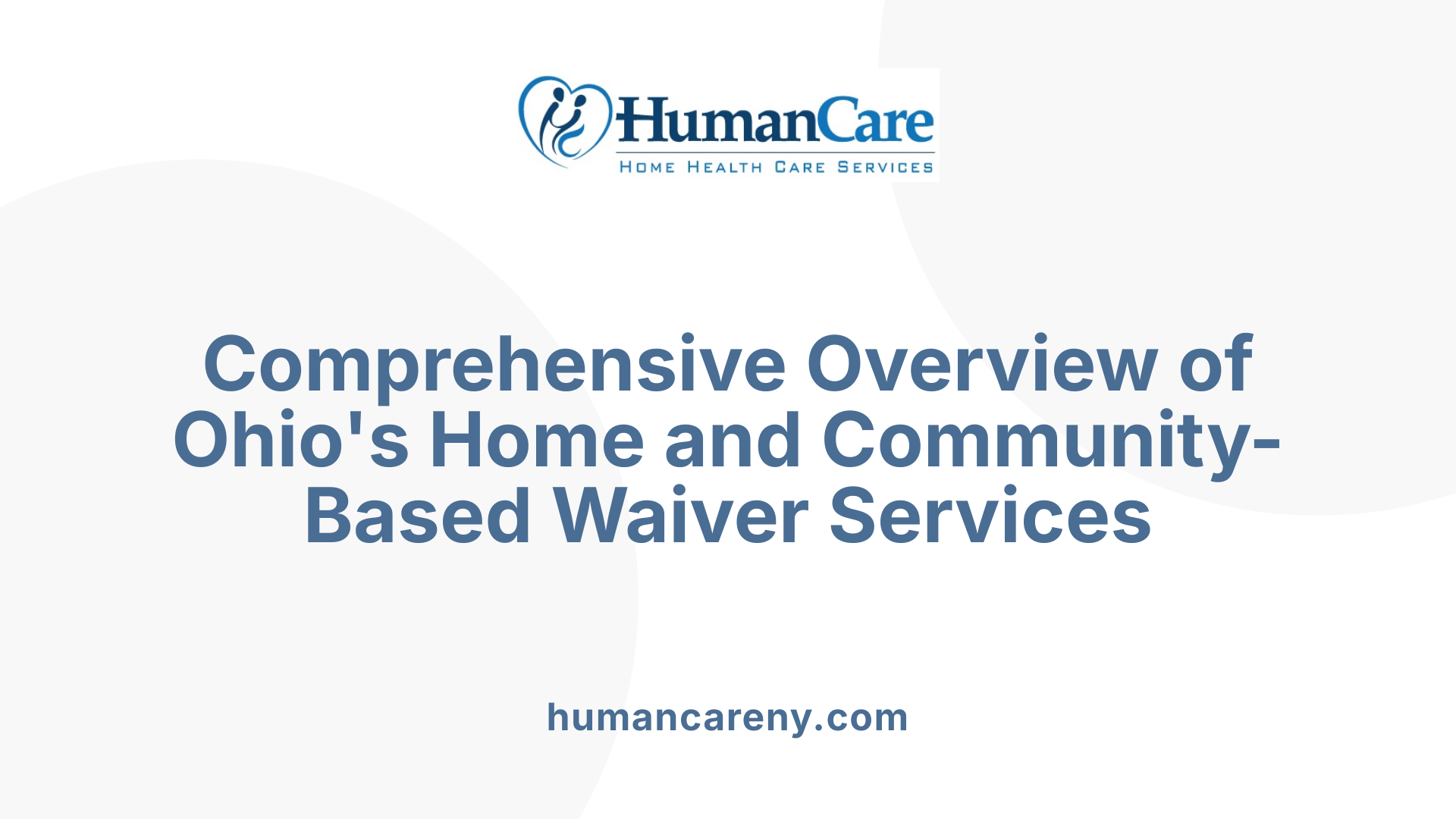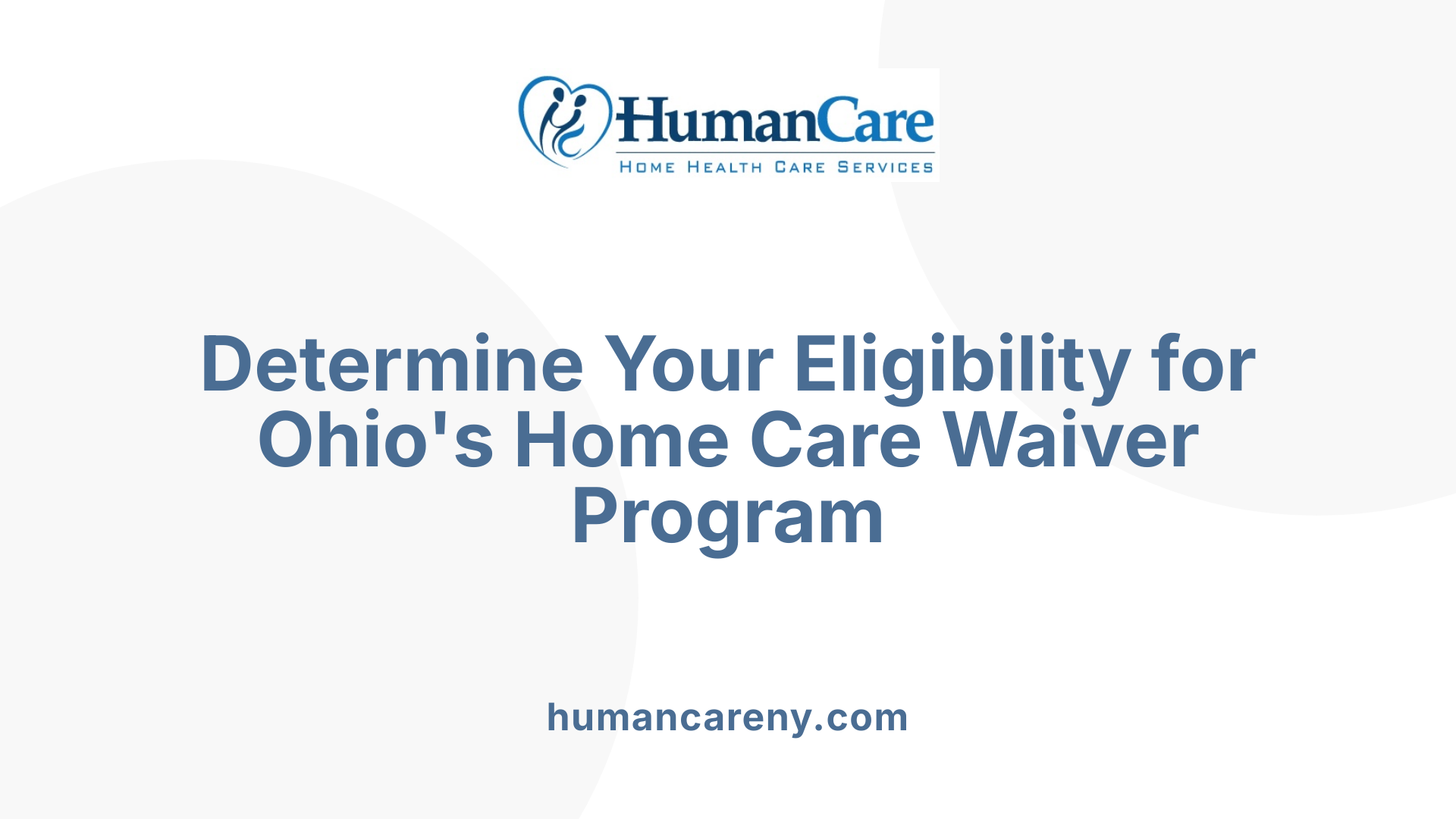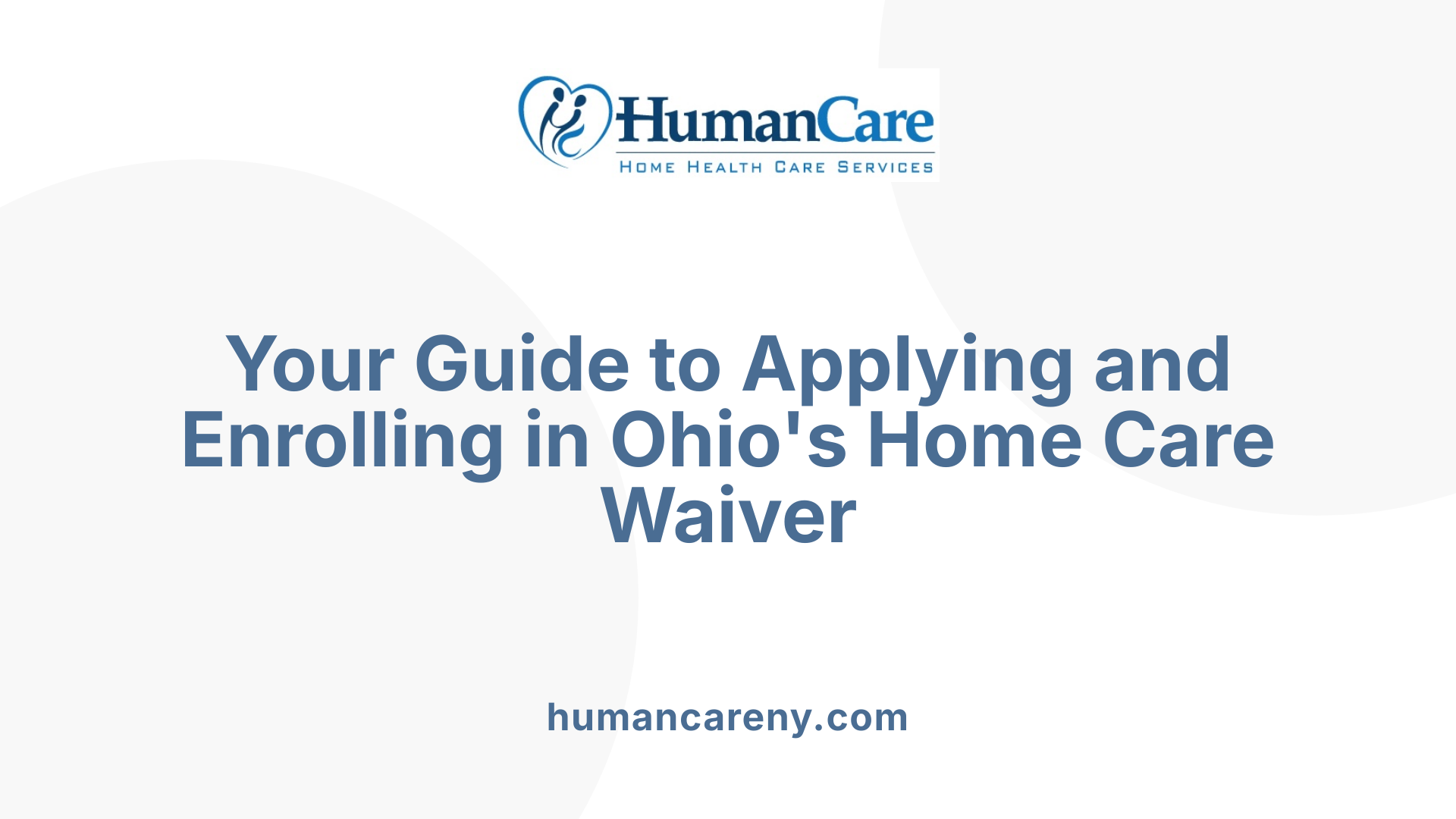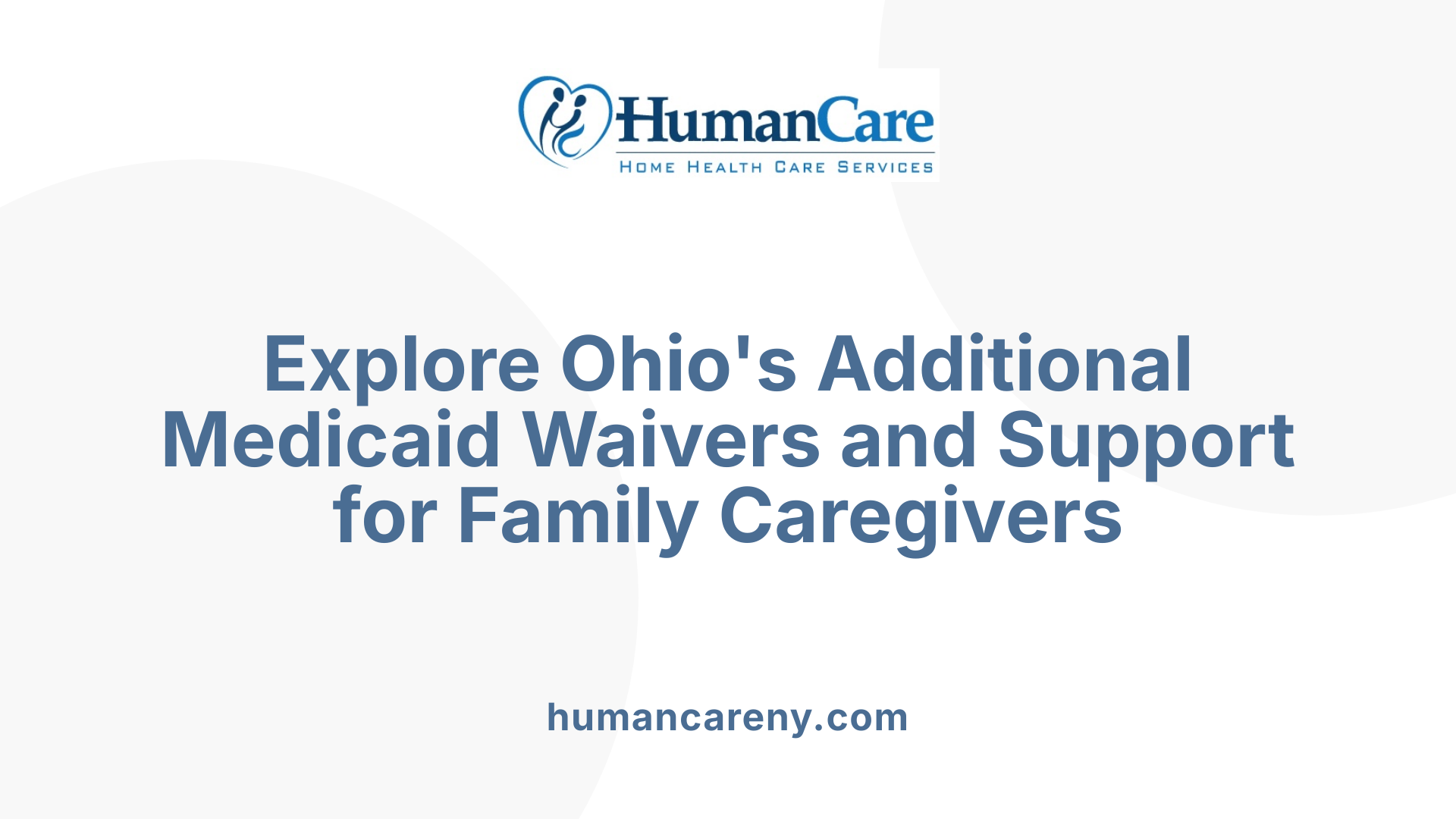Understanding Medicaid Waiver Programs in Ohio
Medicaid waiver programs in Ohio provide vital alternatives to institutional care, allowing individuals with physical disabilities, chronic conditions, and the elderly to receive personalized support in their own homes or community settings. These programs are designed to support independence while offering a comprehensive range of services tailored to individual needs. This article explores recent updates and essential information families need to know about Ohio's home care waiver programs, eligibility criteria, services offered, and how to navigate the application process effectively.
Overview of Ohio's Home Care Waiver Programs

What is the Ohio Home Care Waiver and who does it serve?
The Ohio Home Care Waiver (OHCW) is a Medicaid program operated by the Ohio Department of Medicaid. It serves individuals aged 18 to 59 who have physical disabilities or unstable medical conditions requiring hands-on assistance with daily living activities. These individuals must qualify for Medicaid and meet a nursing facility level of care, offering them an alternative to institutional settings such as nursing facilities or hospitals.
Purpose and scope of Medicaid waiver programs
Medicaid waiver programs in Ohio, including the OHCW, provide in-home and community-based services to people who would otherwise need hospital or nursing facility care. These programs aim to promote independence, reduce institutionalization, and support care delivery in familiar environments. Covered services may span personal care, skilled nursing, therapies, home modification, transportation, respite, and emergency response systems.
Target populations and eligibility criteria
Eligibility generally requires individuals to be on Medicaid and meet a nursing facility level of care based on assessments of their physical, mental, social, and emotional needs. For the OHCW, the age limit is 59. Participants live in their own homes or apartments and require assistance as an alternative to institutional care. The program targets adults with disabilities or chronic conditions needing long-term care services.
Role of Ohio Department of Medicaid
The Ohio Department of Medicaid administers the Home Care Waiver and related Medicaid waiver programs. It oversees eligibility criteria, service scope, and enrollment through local agencies. The department also ensures coordination of care via case management and supports consumer choice within these programs, striving to deliver cost-effective community-based care alternatives.
Eligibility Requirements and Assessment Process

What are the eligibility requirements for the Ohio Home Care Waiver?
To qualify for the Ohio Home Care Waiver (OHCW), individuals must meet several important criteria. They must be enrolled in or eligible for Medicaid, ensuring they meet financial requirements set by the state. Age-wise, applicants need to be between 18 and 59 years old. Additionally, they must require a nursing facility level of care, which means they need assistance with daily living activities typically provided in a nursing home setting. Compliance with other Ohio state-specific regulations is also necessary.
How is eligibility assessed for the waiver programs?
Eligibility is assessed through a detailed needs evaluation. This process is usually triggered by a referral from a physician or medical provider and carried out by a nursing supervisor or case manager. The assessment looks at the individual's physical, mental, social, and emotional status to determine the level of care required—intermediate or skilled. The goal is to confirm that the applicant's needs could be met through home and community-based services as an alternative to institutional care.
What does the application process entail?
Applications begin by submitting Form 02399 to local agencies such as the County Department of Job and Family Services or Regional PASSPORT Administrative Agencies. Assistance is available from organizations like Ohio Benefits Long-Term Services and Supports (OBLTSS) and CareStar. Once enrolled, applicants collaborate with case managers to develop a personalized care plan, ensuring services align with individual needs and preferences. There is flexibility to change case managers if needed.
This structured eligibility and assessment process ensures that the Ohio Home Care Waiver supports individuals who truly need home and community-based care, delivering a cost-effective alternative to nursing facility placement while supporting autonomy and independence.
Comprehensive Services and Support Provided
What kinds of services are covered under the Ohio Home Care Waiver?
The Ohio Home Care Waiver (OHCW) provides an extensive range of home and community-based services designed to support individuals with physical disabilities and unstable medical conditions. Services include personal care aide support, skilled nursing, and therapies such as physical, occupational, and speech therapy. The waiver also covers social work counseling to address emotional and social needs.
Beyond direct care, the program offers home care attendant services, adult day health center services, and home-delivered meals to promote health and convenience. Environmental support is provided through home maintenance, chore assistance, and home modifications to improve safety and accessibility. Additionally, beneficiaries have access to home medical equipment and supplies, supplemental transportation, out-of-home respite services, and personal emergency response systems for safety.
How do case management and care planning work within the programs?
Once enrolled in the OHCW, participants receive tailored case management services. This begins with a thorough assessment of the individual's physical, emotional, and social needs. Based on this, a person-centered care plan is developed to coordinate all required services effectively.
Case managers play a central role in ensuring that care is responsive and well-organized. Importantly, individuals have the option to request a change of case manager if they feel another professional might better meet their needs. This flexibility supports a more personalized and comfortable care experience.
Together, the comprehensive services and structured case management empower participants to maintain independence and receive the support they need within their homes and communities.
Navigating the Application and Enrollment Process

How does one apply for the Ohio Home Care Waiver program?
To apply for the Ohio Home Care Waiver (OHCW), individuals start by submitting Form 02399. This form must be sent to local agencies such as the County Department of Job and Family Services or the Regional PASSPORT Administrative Agencies, which oversee the program at the community level.
Local agencies and support resources
Applicants do not have to navigate the process alone. Assistance is available through Ohio Benefits Long-Term Services and Supports (OBLTSS) as well as CareStar. These organizations provide support to prospective enrollees to help them understand the application requirements and complete any necessary paperwork.
Timeframes and considerations
After submission, the application progresses through a review process that includes assessment of eligibility criteria such as Medicaid qualification, age, residence, and medical needs. Case managers are assigned once enrolled, facilitating a thorough assessment of needs and development of a personalized care plan. Applicants should be aware that processing times may vary depending on local agency workload and completeness of the application.
This structured enrollment process ensures that individuals with physical disabilities or unstable medical conditions receive timely and appropriate care services in their homes and communities as alternatives to institutionalization.
Additional Medicaid Waiver Programs and Family Caregiver Support

Are there other Medicaid waiver programs in Ohio besides the Home Care Waiver?
Yes, Ohio offers several Medicaid waiver programs beyond the Home Care Waiver. Two notable programs include the 1915c Individual Options (IO) Waiver and the PASSPORT program. The IO Waiver supports individuals of any age with chronic or disabling conditions by providing home and community-based services as an alternative to institutional care. This program has limited slots that are distributed across counties and prioritized based on application dates and emergency status. The PASSPORT program targets seniors with Medicaid, prioritizing in-home care through services and offering a consumer-directed option that empowers participants to manage their care.
Can family members be compensated for caregiving through these programs?
Yes. Under certain Ohio Medicaid waiver programs, including some county-specific rules, family members may become eligible for compensation as paid caregivers after completing required training. This arrangement allows families to receive financial support while providing personalized care in a home setting. The consumer-directed option in programs like PASSPORT specifically facilitates this, helping maintain quality care and honoring family involvement.
What are the limitations and prioritizations of services?
Allocation of waiver program slots, particularly in the IO Waiver, is limited and determined by county availability. Applicants are prioritized based on the timing of their applications and emergency needs, which means not all who qualify can immediately access services. These systems help manage demand but also underscore the importance of applying promptly and working closely with case managers to meet eligibility and care requirements effectively.
Empowering Families with Informed Choices
Ohio's Medicaid waiver programs continue to evolve, providing critical in-home and community-based services that enable individuals with significant care needs to maintain independence and dignity outside institutional settings. Understanding eligibility criteria, available services, and navigating the application process can make a meaningful difference for families seeking support. Additionally, options for family caregiver involvement through compensation and training expand resources for care. Staying informed about these updates empowers families to make the best decisions for their loved ones' health and well-being in Ohio.



